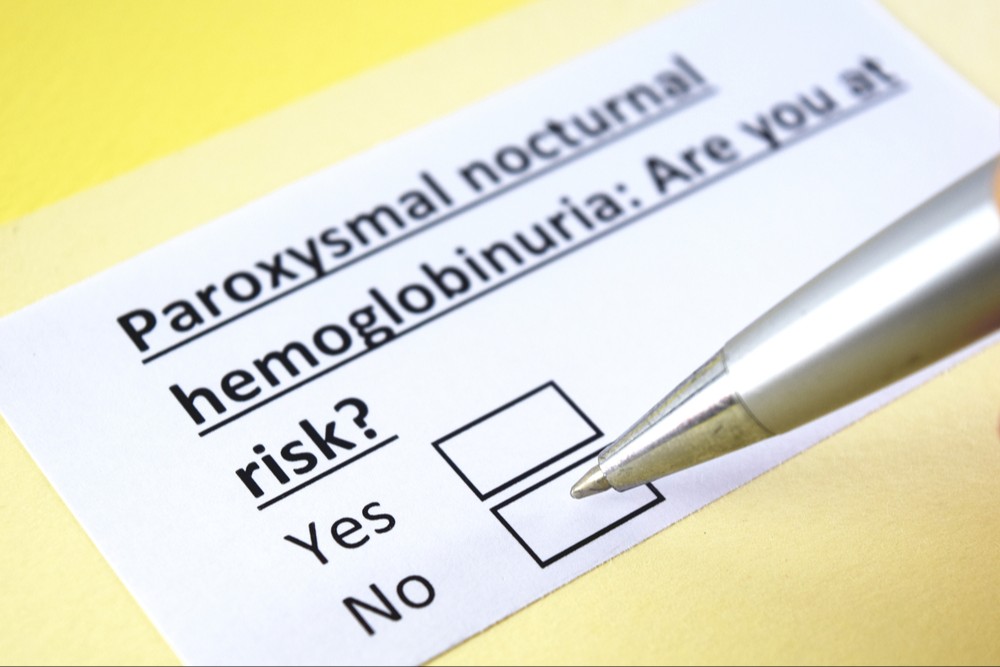Hemoglobinuria is a condition characterized by the presence of hemoglobin in the urine, often giving it a reddish or dark color. This occurs when red blood cells break down and release hemoglobin into the bloodstream, which then passes into the urine. One type of hemoglobinuria is Paroxysmal Nocturnal Hemoglobinuria (PNH), a rare but serious condition that can lead to complications. Recognizing the symptoms, understanding the causes, and exploring treatment options are essential for managing hemoglobinuria effectively.

For a more detailed overview, visit Cleveland Clinic’s guide to Paroxysmal Nocturnal Hemoglobinuria (PNH).
Hemoglobinuria Symptoms
The symptoms of hemoglobinuria can vary depending on the underlying cause. In the case of PNH, symptoms may develop gradually and worsen over time. Common signs of hemoglobinuria include:
- Dark or Red-Colored Urine: Hemoglobin in the urine can cause it to appear red, brown, or tea-colored, especially in the morning.
- Fatigue and Weakness: Due to the destruction of red blood cells, individuals may experience fatigue and general weakness.
- Shortness of Breath: With reduced red blood cell counts, oxygen delivery to the body decreases, leading to breathlessness.
- Abdominal Pain: Hemoglobinuria can sometimes cause abdominal pain or discomfort.
- Frequent Infections: Some forms of hemoglobinuria, like PNH, weaken the immune system, making individuals more susceptible to infections.
For more information on hemoglobinuria symptoms, see Rare Diseases’ page on Paroxysmal Nocturnal Hemoglobinuria.
Causes of Hemoglobinuria
Hemoglobinuria occurs due to the breakdown of red blood cells, a process known as hemolysis. Several conditions can lead to hemolysis and, consequently, hemoglobinuria. The causes of hemoglobinuria include:
- Paroxysmal Nocturnal Hemoglobinuria (PNH): This rare genetic disorder causes red blood cells to break down more easily, leading to hemoglobinuria. It results from a mutation in the PIGA gene, which affects the cell membrane and makes cells vulnerable to destruction.
- Hemolytic Anemia: Conditions that cause red blood cells to break down, such as certain types of anemia, can also lead to hemoglobin in the urine.
- Infections and Toxins: Exposure to certain infections or toxins may result in hemoglobinuria as the body reacts by breaking down red blood cells.
- Physical Trauma to Red Blood Cells: Intense physical activity, especially in conditions with low oxygen, can damage red blood cells, leading to hemoglobinuria. This is sometimes seen in athletes or military personnel.
For an in-depth look at PNH and other hemoglobinuria causes, MedlinePlus Genetics offers comprehensive details on the genetic factors involved.
Managing Hemoglobinuria Effectively
Managing hemoglobinuria depends on the underlying cause and severity of symptoms. Here are some strategies that can help manage symptoms and prevent complications:
- Monitor Symptoms: Regularly tracking symptoms like urine color, fatigue, and breathing can help detect changes and seek timely care.
- Routine Blood Tests: Blood tests can assess red blood cell counts and monitor hemoglobin levels, helping doctors understand the progression of the condition.
- Avoid Known Triggers: For individuals with exercise-induced hemoglobinuria, moderating physical activity may help prevent hemolysis.
For more guidance on managing hemoglobinuria, Mount Sinai provides resources on tracking and managing this condition.
Hemoglobinuria Treatment Options
Treatment for hemoglobinuria focuses on addressing the root cause and alleviating symptoms. Options include medication, lifestyle adjustments, and in severe cases, advanced therapies.
For a comprehensive list of treatment options for hemoglobinuria and PNH, visit Top Doctors.
Understanding and Managing Hemoglobinuria
Hemoglobinuria is a complex condition with various causes, each requiring different management approaches. Early detection, lifestyle adjustments, and appropriate treatments can help manage symptoms and improve quality of life. If you or a loved one is experiencing symptoms of hemoglobinuria, consult a healthcare provider for diagnosis and personalized treatment options.
For further reading on hemoglobinuria, visit Cleveland Clinic’s guide to PNH.




